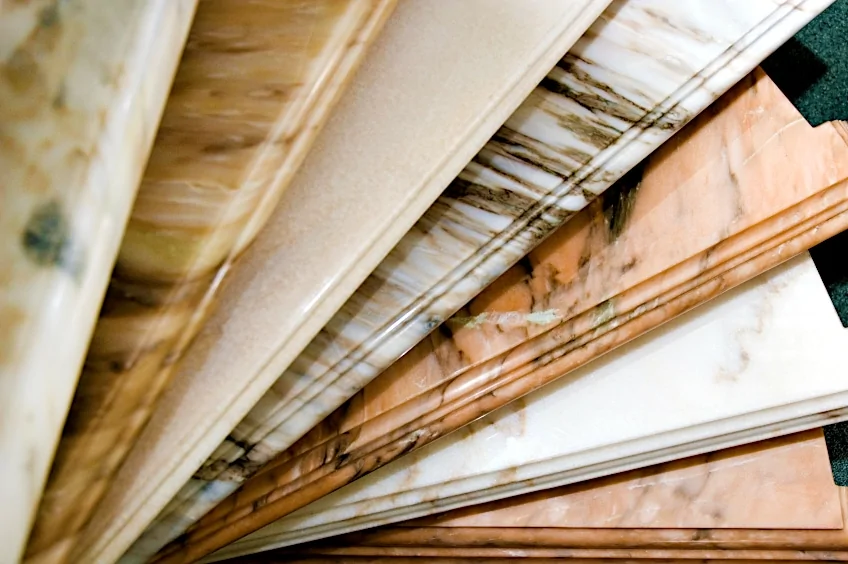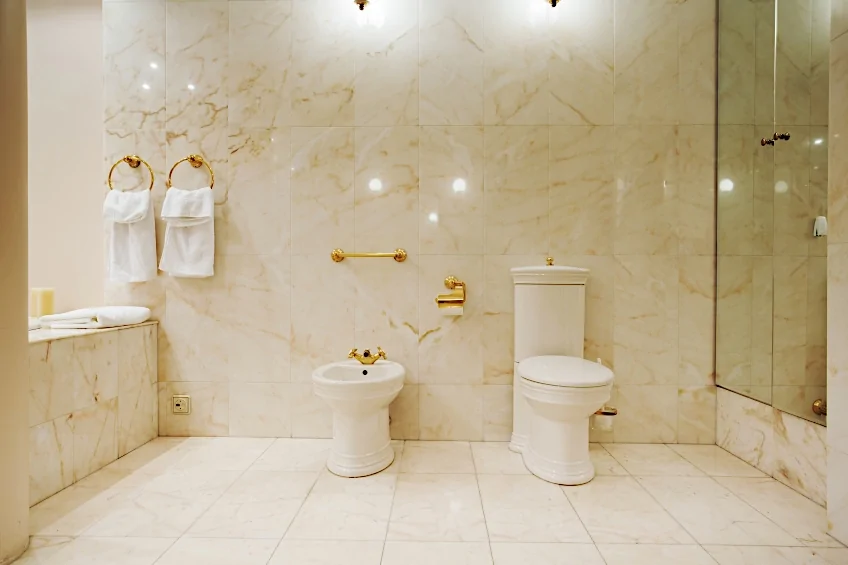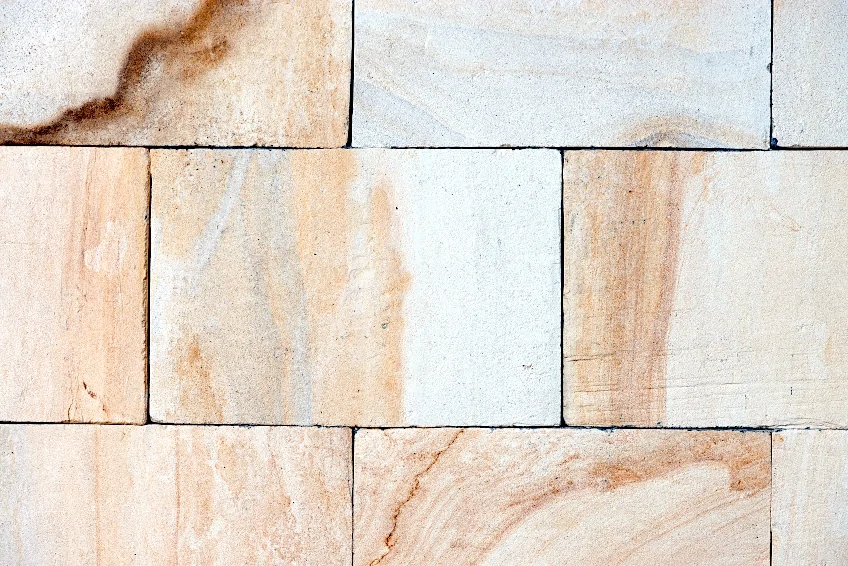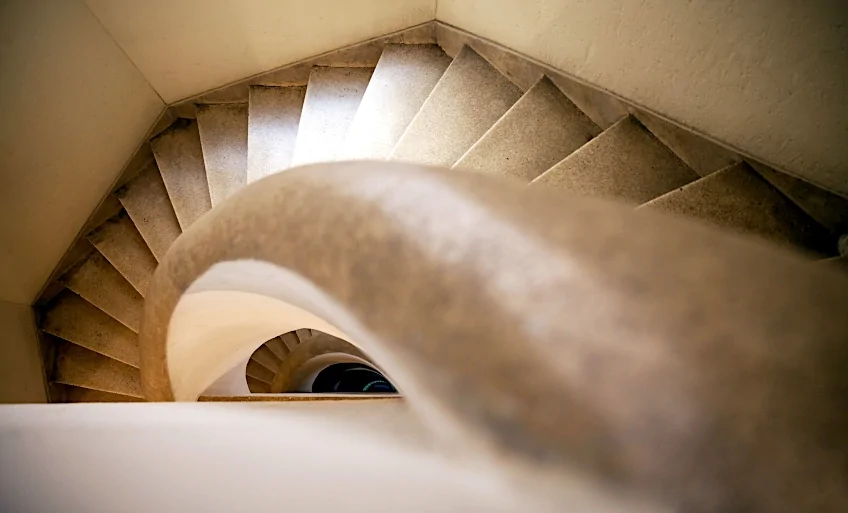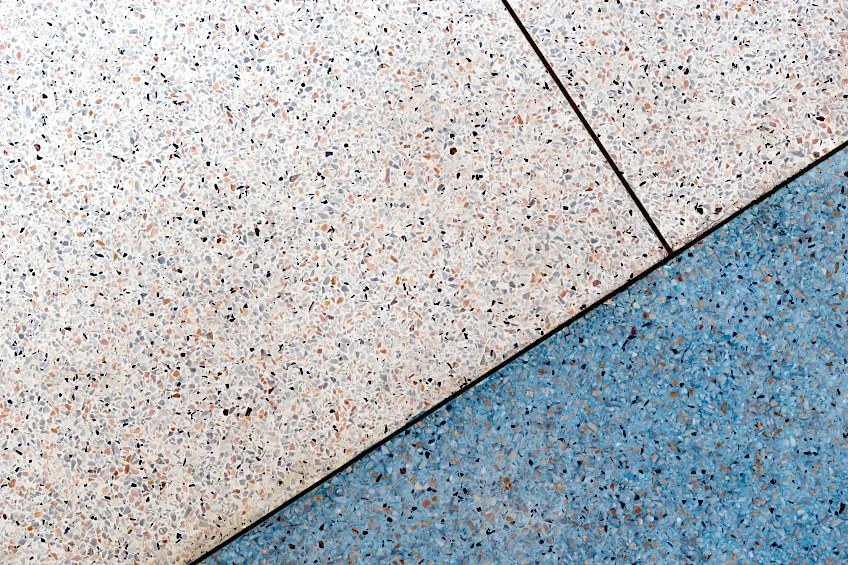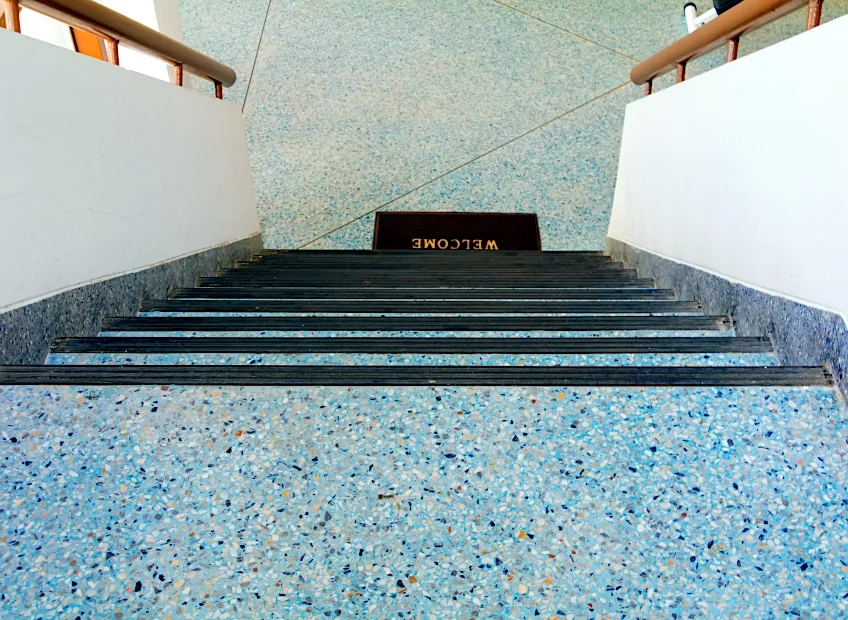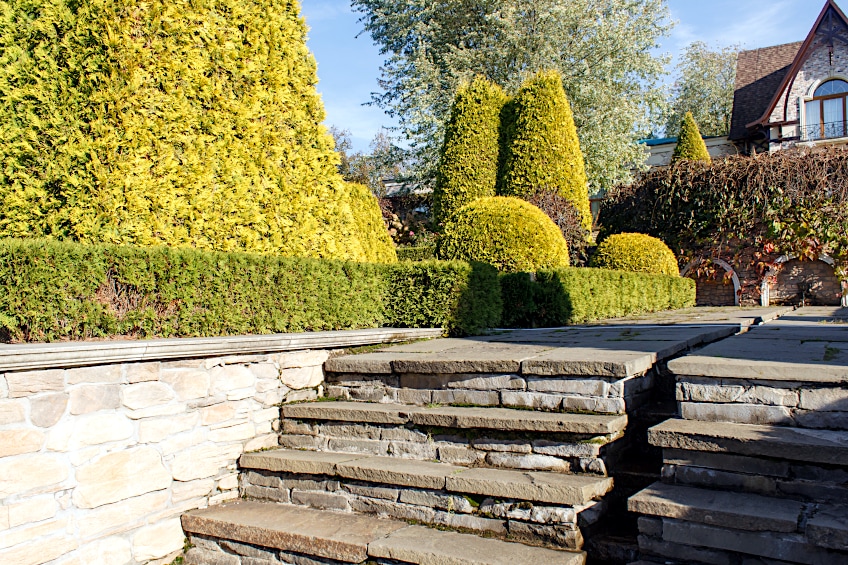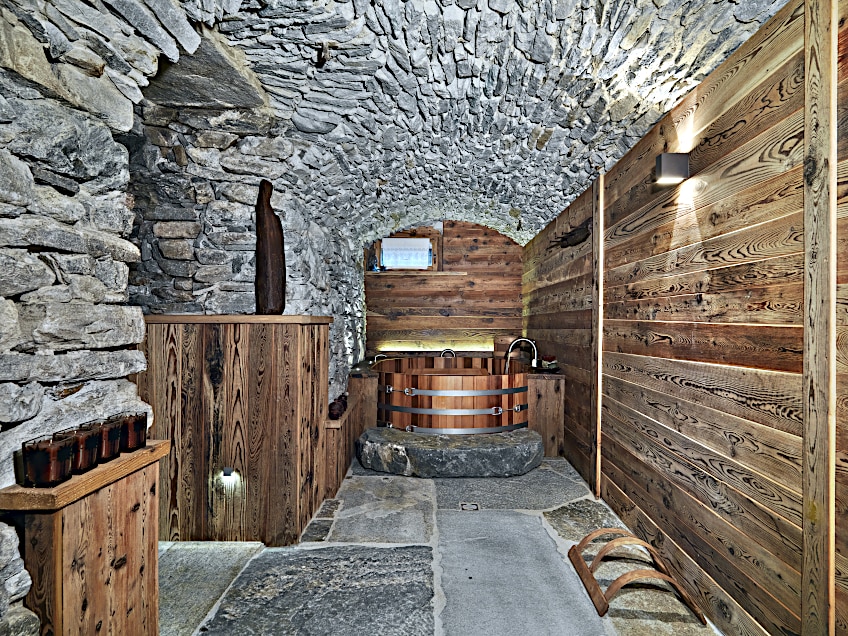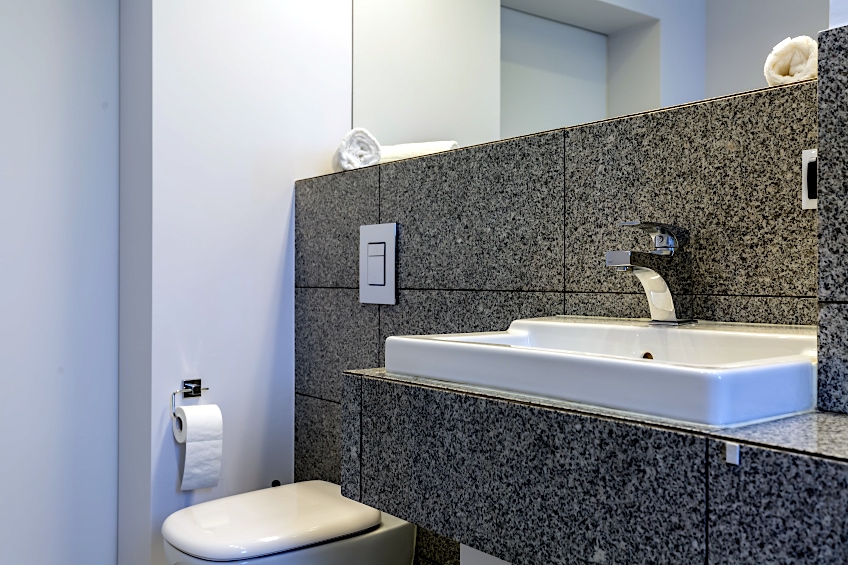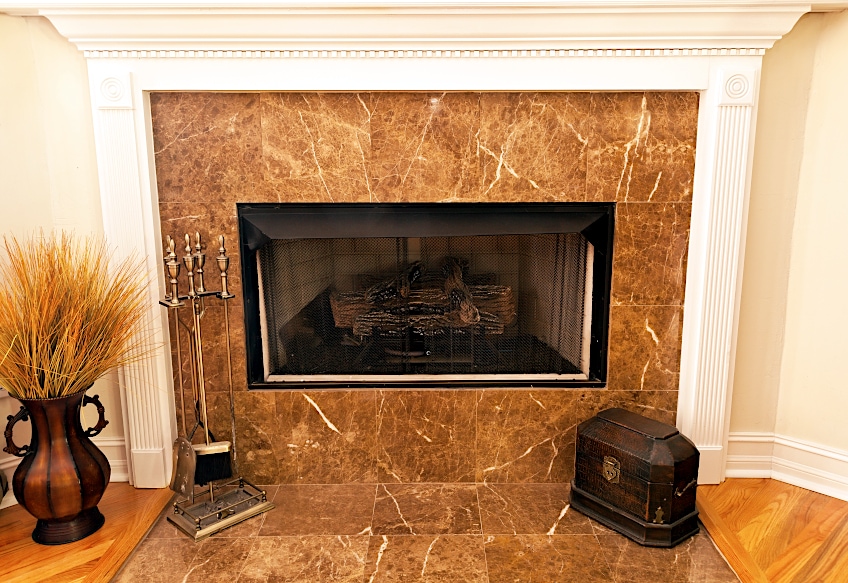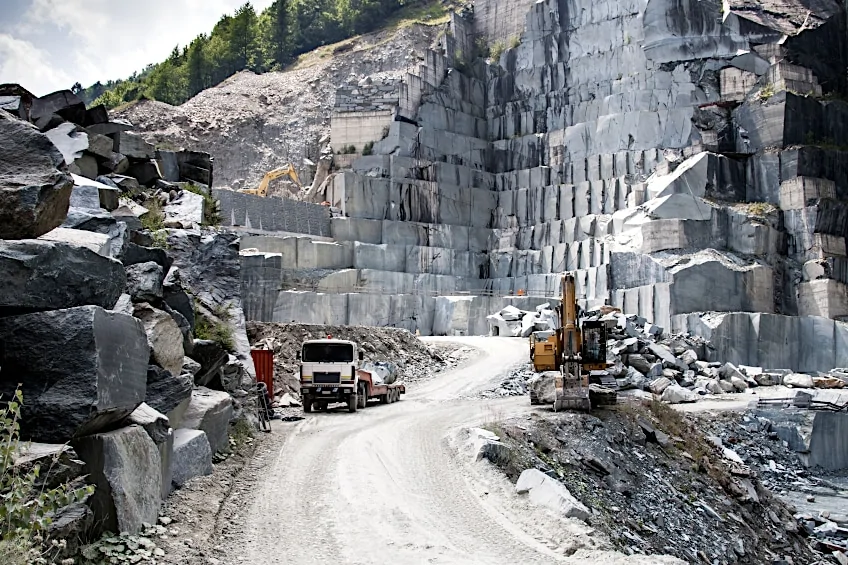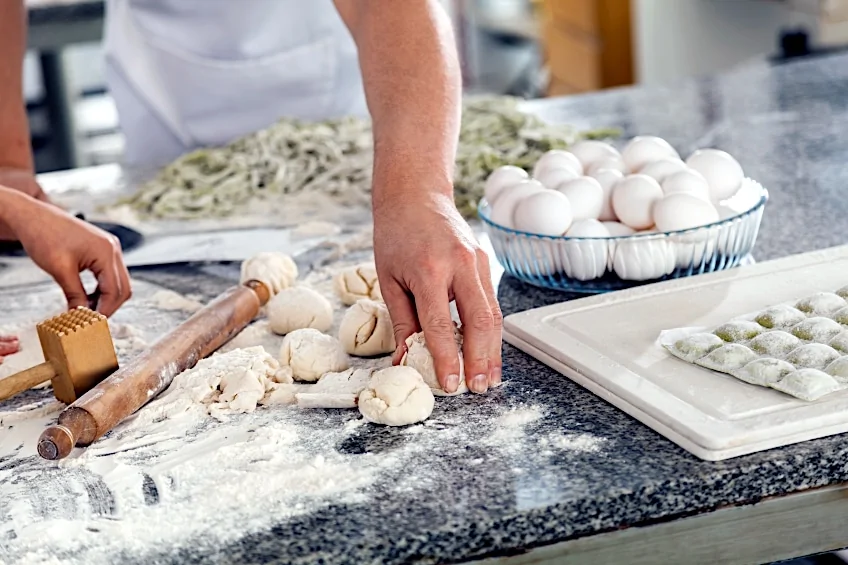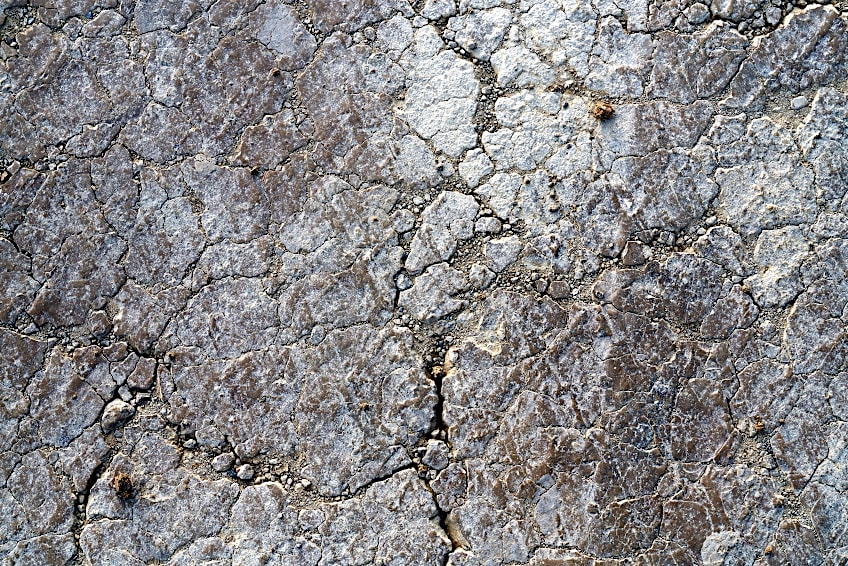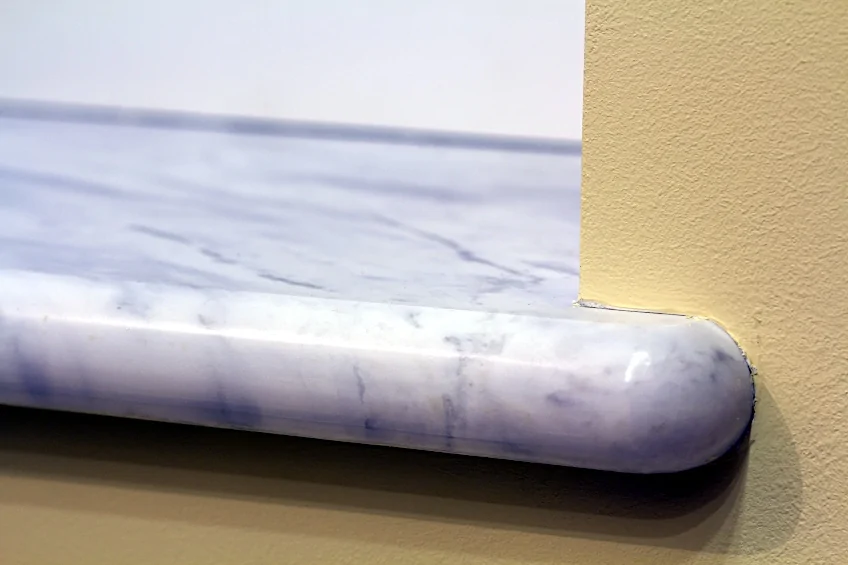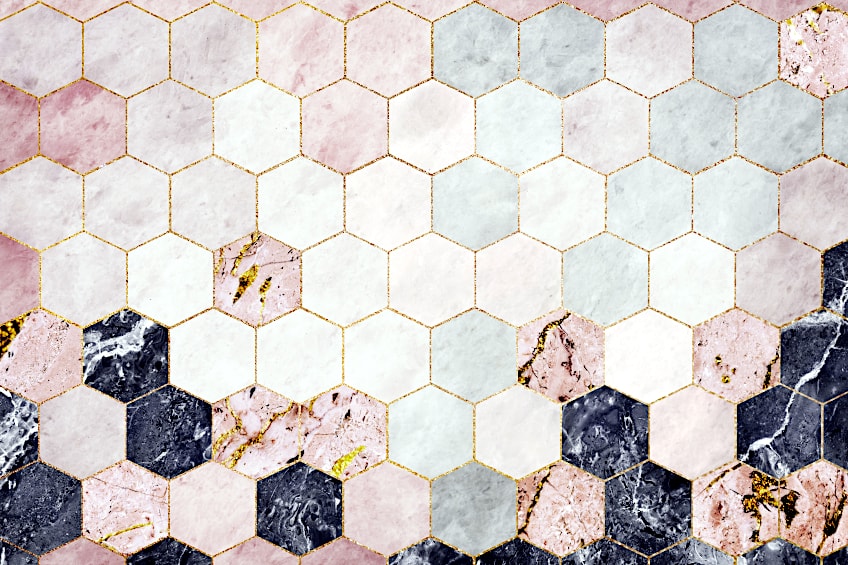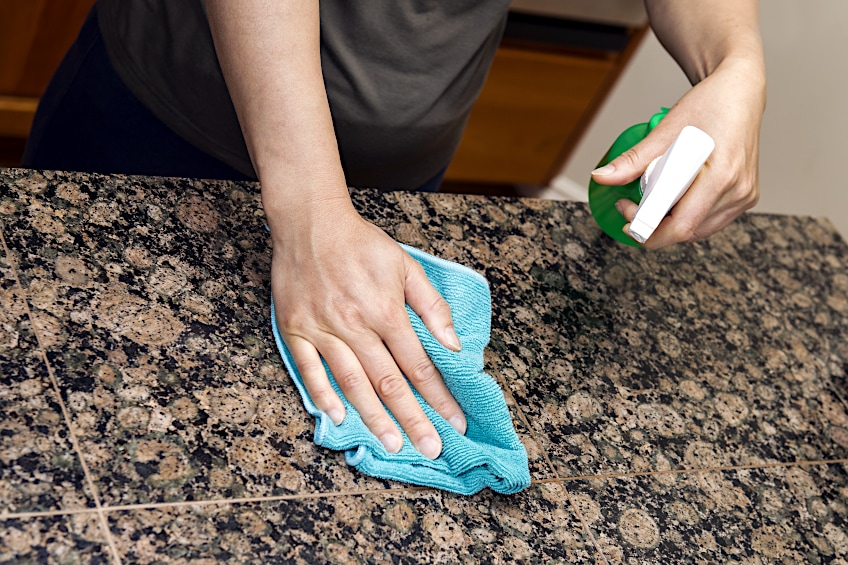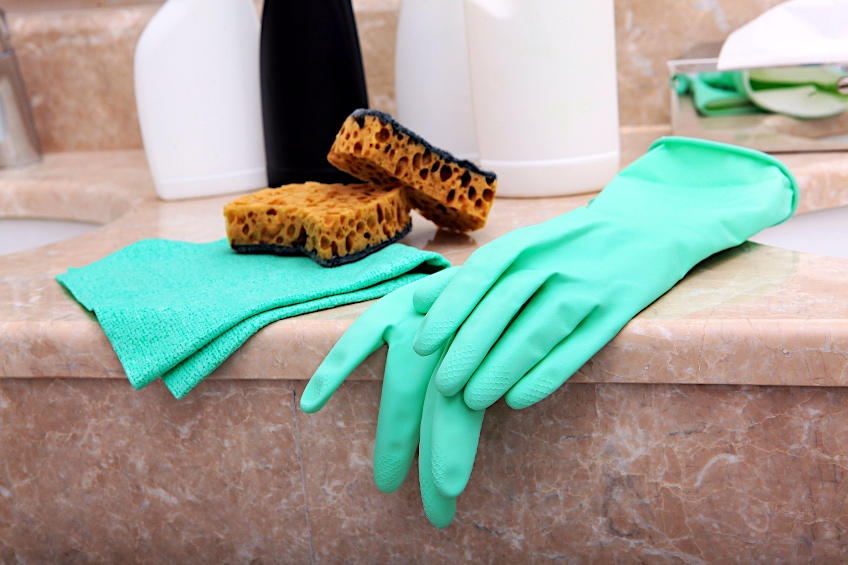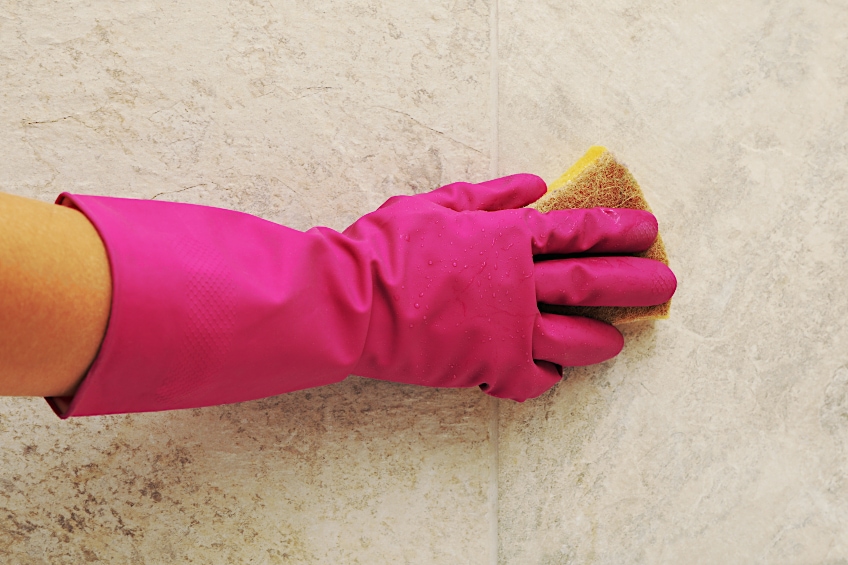Best Natural Stone Sealer – How to Protect Your Stone Surfaces
This post may contain affiliate links. We may earn a small commission from purchases made through them, at no additional cost to you. You help to support resin-expert.com
Natural stone has fast become one of the most popular choices in interior design. Why? Natural stone offers a simple yet effective means of achieving a modern, minimalist look that still provides an absolute ton of visual impact. Choosing a natural stone for your home or office can be challenging, there are so many beautiful options to choose from, not to mention needing to pick one that suits the space and application in a given space. If you’re choosing a stone for your kitchen it needs to be hard-wearing and not easily susceptible to damage, and if you’re choosing a stone for your bathroom or sauna, it needs to be easily sealed and invulnerable to damage moisture or mold. This being said, let’s have a look at some commonly used interior stones, what their characteristics are, and how to seal them effectively.
Table of Contents
What Types of Interior Stone are Available?
Primarily, there are five types of interior stone that are used for interior decoration. Stone can be challenging to install, so if you’ve never installed stone before we recommend you get a professional involved not only to save you some money and time but to avoid any unfortunate accidents. Now, let’s have a look at some of the stones you should have available when choosing a finish for your home or office space!
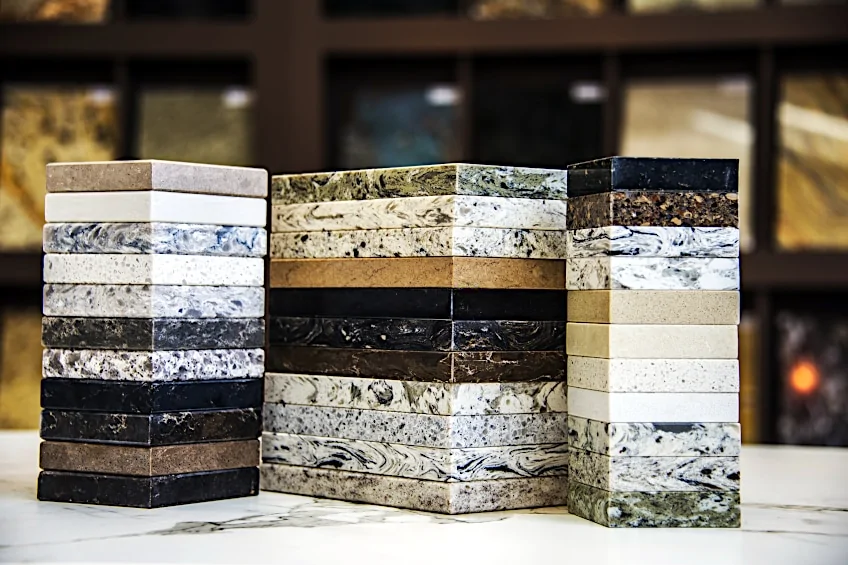
Marble Finishes
Marble provides a unique aesthetic that livens up spaces and pretty much instantly adds an air of class to a space just by being there. This being said, marble can be a challenge to work with and install.
Despite being one of the most durable stones available, it can crack or cause your foundation to crack with ease. It’s for this reason that there is an entire industry devoted to installing and maintaining marble flooring and countertops.
Marble is commonly used for bathroom interiors because it is far less porous than any other stone in its class, with percentages ranging between 0.5 to 2% overall porosity. Marble can also be quite expensive which is why most modern homes simply cover regular plywood with a kind of marble veneer to achieve the same effect, although the two are easily discernible from one another.
Maintaining marble can be a bit of a challenge too, as chemicals tend to degrade its trademark sheen finish, it should come as no surprise then that just as there is an entire industry dedicated to installing marble, there is another dedicated entirely to maintaining and repairing marble surfaces.
In ancient times (and in the current day to a degree) marble was seen as an indicator of class and wealth. This stone was typically reserved for tombs and for the homes of those with a high social or financial standing in society, as even back then this stone could cost you a pretty penny.
Limestone Finishes
Limestone is a close second to marble finishes in the field of interior design, featuring a surface that is highly durable and readily available for purchase, limestone can be found in both interior and exterior settings for home and office. What is limestone? Well, it’s a type of stone formed over time that consists of sand and marine fossil life.
Unlike marble, limestone has an understated chic that allows it to go unnoticed at first until its beauty and sophistication catch you off guard. It is often used for walls and floors for both residential and commercial applications, often combined with a tint that can be altered to your preference.
This stone is nowhere near as heavy or as expensive as marble but has roughly the same degree of durability which is why you can often find it in large foyer areas and other spaces which have a high rate of foot traffic. Staircases made of limestone are also commonplace in luxury homes, as they are easy to install and mold compared to other stones in its class, not to mention easy to maintain and repair in the event of damage.
Limestone is extremely versatile, it has a great heat resistance, which is why it is often used in fireplaces. In addition to fireplaces and walking areas, limestone is often used to fashion or cover large structural pillars/columns.
Limestone has been used for hundreds of years by kings and other important figures to display their wealth and opulence across the world. Like marble. Limestone too has a home in the kitchen, being used for bench and countertops to achieve a warm, light aesthetic that tends to be extremely durable compared to other engineered materials used for the same application.
Despite its versatile, robust, and aesthetically pleasing qualities, limestone is relatively inexpensive compared to other stones and has a porosity of between 0 to 20% depending on the origin of the stone and location of the quarry from which it’s been mined.
Terrazzo Finishes
Moving on to a stone finish with a bit less degree than the last one we covered, terrazzo is a finish that looks great and is significantly cheaper than any of the aforementioned. Why? Well, the others are considered natural stone because they are mined, refined, and cut to fit a specific application, whereas terrazzo is essentially cobbled together from other bits of natural stone for the same purpose.
What is terrazzo made of, you ask? Well, depending on what the manufacturer’s preferences are and the application the material will be used for, terrazzo can be made of a combination of glass, marble, granite, quartz, and any other material that might assist in the application that lies ahead. How are these fragments held together?
Again, this depends on industry standards in the region it’s being made, but for the most part, a binder consisting of cement or polymeric is used to bind the bits together. The end result can be smoothed out or made into a textured surface depending on the order or the output application of the manufacturers, but in most cases, a terrazzo stone finish can be custom-made to your preferences.
This type of finish is versatile and extremely durable, so it should come as no surprise that you can find it in many interior and exterior locations not only in the United States but all over the developed world. Terrazzo has very much been adapted as a modern design material, but versions of it date back to ancient Egypt. The terrazzo we know today derives from a type invented in Italy during the Renaissance.
Terrazzo is really dense due to all of those different materials being compressed together, which means it holds water extremely well. In fact, it holds water so well that there is no official porosity percentage for this material as mixing ratios and density can vary considerably from manufacturer to manufacturer.
Fieldstone Finishes
This finish is more common than one might think, and although it is typically used for an exterior finish in things like gardens or nurseries, fieldstone’s use has since expanded due to the versatility this material affords.
Back in the day, fieldstone was originally used to create low walls on agricultural holdings or functioned as a natural border for rivers and lakes all around the world. This stone is pretty tough, and as soon as people caught on it was used in the construction of many rural structures, as it functions as a cheap, effective, and aesthetically pleasing way to create small and large dwellings.
Why was it so effective in a rural setting? Fieldstone is robust and it takes significantly less of it to construct a moderately sized home than it would be using brick or other conventional materials. It is strong enough to resist high-velocity winds and a torrential downpour during the winter months and is dense enough to retain a cool interior atmosphere during those long hot summer months.
These days, fieldstone is used less for its practical ability and more for its aesthetic appeal, being found more and more in modern bathroom settings and high-end hotels rather than part of garden walls. This type of stone finish is significantly harder to polish compared to marble and lime finishes because of its inherently rough texture.
Fieldstone is a natural stone, but it tends to get softer over time, especially after prolonged exposure to harsh weather conditions like extreme sunlight or torrential downpour. This being said, if fieldstone is kept in relatively neutral conditions, it can have a porosity percentage of up to 40 percent.
If you intend to use fieldstone in an area of high humidity or condensation, we strongly recommend applying a sealer to the surface and grout. Failing to do so could result in mold or considerable damage to the structural integrity of the wall or surface you’ve constructed.
Granite Finishes
Looking for a stone finish that has the look and feel of marble without the cost? Well then, we think that granite might be right up your alley. Granite offers a near-identical feel and all of the characteristics of marble without any of the hassle or cost of the latter, providing a sleek black finish that will last the lifetime of your workpiece.
Granite is also significantly easier to maintain compared to marble, which means you won’t have to handle your flooring, countertops, or walls like they’re made of sundried plastic. Granite is most commonly used in kitchen countertop designs, not only because it looks great and is easy to clean, but it is extremely heat resistant which is perfect if you’re installing a gas hob or simply don’t want to jump onto the whole induction cookware hype train.
These days countertops experience a lot of degradation not only from neglect but from sunlight too. If your countertops are made of engineered wood, there is a strong possibility that at some point they’ll fade or yellow from sun exposure if you haven’t sealed them correctly. If you choose to go with a granite countertop this problem can be avoided entirely, granite (although porous) is naturally resistant to heat and UV damage which means you won’t have to constantly fret about sunlight on your countertops.
Granite, like marble and limestone, is a natural stone that can be mined and polished to create beautiful feature walls, bathroom floors, kitchen countertops, or even entire basin and sink sets if you have the money and time for that sort of thing.
Another feature of granite that makes it one of the most sought-after stone finishes is that it is barely porous at all, featuring (more or less) the same porosity of marble at 2%. Not only does this mean that it attracts and retains less moisture overall, but it makes it an absolute pleasure to clean.
Why Should Natural Stone be Sealed?
Natural stone seems to be becoming more and more popular in our homes and offices, but if they aren’t sealed and maintained correctly you run the risk of compromising your surfaces. How does not sealing your surfaces cause them to degrade? Well, any stone, no matter its type or origin, has a degree of porosity to them.
This means that depending on what type of stone you have, things like dust, food, and moisture can get stuck in those little spaces. It’s these little particles that can slowly chip away at your surfaces, which can cause hollow points in the stone that could grow and eventually cause the structure to be unsound.
Cleaning these surfaces only works to a certain degree. Without sealing your stone surfaces the rate of degradation and the frequency of cleaning them will increase exponentially as the pores of the wood expand and multiply.
Although protecting the integrity of your stone surfaces is one reason to ensure that they have been sealed correctly, it’s not the only reason. Stone is tough, but even before it has been refined and polished it is susceptible to degradation in its natural environment.
Sealers help prevent scratches and chips from happening, and if you think this won’t happen to you just ask yourself when you accidentally dropped something on your floor or countertop. Now, imagine a virtually irreparable dent in the same surface, which could cost you a small fortune to fix.
This being said, stone surfaces are more of an investment than an impulse purchase, and just like you’d probably get insurance if you bought yourself a brand-new sports car, you should probably “ensure” your new surfaces by applying a high-quality sealant.
Sealants aren’t expensive by any measure and require minimal effort to apply, and if you’re not in the mood you could always hire professionals to do it for you, although this would cost significantly more.
If you’re worried about authenticity, you shouldn’t be. Stone sealers perfectly preserve the texture and feel of your stone surfaces. Unlike wood sealers that only fill in the voids present on the surface of the stone without compromising the visual impact or overall aesthetic the stone creates.
What Types of Sealers are Available for Stone?
There are loads of sealer types available for your stone finishes. Depending on the type of stone you’re trying to seal one or more will be most conducive to sealing said surfaces, so let’s have a look at some of the different types of sealers on the market as well as their characteristics and which applications they are best suited to.
Coating Sealers
As the name suggests these sealers coat the surface of your stone, sealing them off from any threats in your immediate environment. Coatings are easy to apply, protect your stone surfaces, are relatively inexpensive, are easy to repair, and are available in the peelable and permanent variety.
Coatings are the easiest way to go about sealing your stone surfaces if you’re working alone, and they’re pretty useful if you happen to be on a tight budget after installing your new stone finishes. Keep in mind that this type of sealer is meant to soak up any damage that would otherwise befall your stone surfaces so you can expect to maintain or replace them regularly depending on whether you go with a permanent or peelable option.
You could think of peelable or strippable coatings as polyurethane coatings that you often find on easy-wearing wooden surfaces, they allow a quick and effective way to protect your stone surfaces, and you have the option of deciding what degree of thickness you would like to apply to them.
We mentioned previously that sealers don’t compromise the texture of your surface, and although most don’t, we recommend using this type of sealer on surfaces that happen to already be flush as the layer strippable sealer will ultimately affect the gradient of your surface.
For this reason, this type of sealer is most commonly used on surfaces like flooring and countertops, and considering it would be pretty challenging to apply them to vertical surfaces this is probably for the best.
Permanent coatings are pretty much the same, although their chemical composition makes them pretty much impossible to remove without considerable effort or a stripper designed specifically to remove them, and if you do need to remove them at some point you run the risk of damaging your stone surfaces.
- Relatively affordable
- Easy to use and apply
- Protects the surface of your stoneware
- Adds a layer of surface friction to your workpiece (grip)
- Can be added to surfaces regardless of whether its indoors or outdoors
- Adds a sheen finish to your stone surfaces
- Requires lots of maintenance if your area is trafficked/used frequently
- If repaired inadequately it can produce an unsightly look
- If the finish is not UV resistant it can turn yellow over time
- Removing and maintaining this type of sealer can damage your stone if you are not careful
- If your stone requires atmospheric exposure, it could cause the stone to degrade over time
Impregnating Sealers
This type of sealer doesn’t cover the surface of the stone surface, in fact, it is applied to the grooves, crevices and recesses present both inside and on the surface of the stone. This type of sealer consists of a combination of polyurethane, silicone, and/or fluoropolymers which fill all of these little gaps and prevent things like water, sand, dust, insects, and mold from getting cozy.
This is great for both sheer and textures surfaces as it allows you to maintain the overall aesthetic of your stone, although it does cost a bit more and takes a bit longer to pull off. This type of sealer can be designed to be resistant to water, oil, or both depending on the brand and application, but it’s always best to go with a bit of both even if the environment your workpiece is situated in is not subject to these elements.
Remember that impregnating sealers won’t do much if the type of stone you’re using is predisposed to certain types of damage, such as those that are easily damaged by naturally occurring acids or aerosol products.
This being said, you should do your best to read up on the type of stone you’re working with to ensure that your sealer is able to compensate for any inherent weaknesses in stones makeup, if not, you could end up doing more work (and spending more money) than you need to, or you could end up under compensating for the stone at hand. Do your homework!
- Does not alter the texture or look of the stone
- Does not require maintenance or reapplication as frequently as coatings
- Most (if not all) modern impregnators are UV damage resistant
- Most are resistant to damage by water and oil and will repel these substances
- Depending on the type of stone, these finishes can last for several years
- These substances use solvents as a base and therefore can be flammable
- Can contain volatile organic compounds (VOCs) which are not environmentally friendly and can cause discomfort
- This type of sealer is not suitable for beginners
- Impregnators can cost significantly more than coatings
- These cannot be used to seal any “below grade” (underground) surfaces because water pressure would force any plugs created by this sealer to pop out
What is the Best Stone Sealer for Your Stone Surfaces?
Now that you know what the most common types of stone are for both interior and exterior decorations and what types of sealers are available for them, you’re probably wondering what types of sealers are available for your workpiece. Not all natural stone sealer products are created equal, so let’s have a look at what the best natural stone sealer is for your stone type.
Best Marble Sealer: DRY-TREAT Stain-Proof Premium Impregnating Sealer
If you’ve just installed a brand spanking new marble floor or countertop, you’re probably a bit apprehensive about using it. Can anyone really blame you? Besides not wanting to ruin your new flawless finish, it probably cost you a pretty penny.
Not to worry though, the Dry-treat team has your back with their proven stain-proof marble sealer, which does an incredible job of preserving and protecting a multitude of stone surfaces from things like moisture, mold, and even heat damage!
This particular marble sealer from the Dry-treat team is an impregnating sealer that is not only moisture and oil resistant but ensures that all of your stone surfaces are that much easier to clean by creating a sheen barrier between the stone and its immediate environment.
Incredibly, this doesn’t affect the texture of the stone, and what’s more, is that this sealer is completely permanent which means your stone will be protected for virtually its entire lifespan.
This particular variation of their stone care range has been formulated especially for stain protection, so whether you have a brand-new stone countertop of flooring, you can rest assured that the next time you or a little one accidentally spills something your floor won’t be ruined.
Still not sold? Well, in addition to being stain-resistant and permanent, the Dry-treat team has ensured that the formula allows your surfaces to breathe which ensures that you won’t have to deal with any unsightly cracks over time.
- Long-lasting protection against staining, water, and dissolved salts
- The formula prevents harmful moisture buildup
- Suitable for natural stone, tiles, pavers, concrete, brick, and grout
- Completely stain resistant
- Allows stone to breathe
- Oil and water-resistant
- Creates a Sheen finish
- The premium level of finish
- Effects are permanent
- Makes stone easier to clean
- Works on all impregnable stone surfaces
- Expensive
- Only sold in one volume
- Poor container ergonomics
Best Sealer for Granite: GRANITE GOLD Sealer Spray Water-Based
Granite surfaces are very much an investment, and although they are marginally cheaper than marble, they can still cost quite a bit to acquire and install. It’s for this exact reason that the team over at Granite Gold has designed what is arguably the best natural stone sealer for granite on the market.
This water-based sealer from the Granite gold team offers impeccable sealing quality which does an incredible job of sealing your precious stone surfaces from things like stone and water build up in its recesses.
Unfortunately, this natural stone sealer is not permanent so you will have to reapply it periodically but considering how user-friendly and ergonomic the spray bottle is it won’t take much effort at all. Besides, this is a simple spray and wipe sealer, so you don’t have to worry yourself getting down on your hands and knees while trying to force the sealer to sink in, simply spray, wipe and let the sealer do all the work.
What’s more is that this formula is food safe, and is graded for repelling oil, water, coffee stains, salt, and even the odd bit of wine! Although designed for use on granite, it can be used on marble, slate, and even grout. Granite Gold is a family-owned company too, so why not support small businesses and give them a try the next time you need some high-quality, food-safe granite sealer?
- Spray-on sealer creates a protective stain and damage resistant barrier
- Use on granite, marble, travertine, limestone, slate, stone, and grout
- Formula is pH balanced, food-safe, and has no phosphates or ammonia
- Reasonably priced
- Versatile
- Easy to use
- Food safe formula
- Prevents abrasion and impact damage
- Contains no volatile organic chemicals
- Requires regular reapplication
- Sold in small quantities
- Does not last as long as impregnating sealers
Best Sealer for Travertine: MIRACLE SEALANTS Impregnator Sealer
Travertine and similar stone finishes have fast become one of the most used sealers on the market, loads of people use this stone to create a beautiful, elegant finish that lasts for pretty much a lifetime if you take good care of it.
This being said, when choosing natural stone sealants, you really want to go with the best there is, and there’s arguably no better than the easy-to-use impregnator sealer from the Miracle Sealants team.
This impregnator sealer not only gives you top-notch protection from things like mold, water, oil, and food stains, it also gives your travertine finish a unique tonal differentiation to set it apart from the crowd
Unlike most impregnating natural stone sealants, the Miracle sealants team has made their formula easy to use so there’s no need to go through the trouble of hiring a professional to seal your surfaces.
This sealer not only works on natural stone surfaces, but you could also use it to seal everything from tiles to ceramics from the ravages of scratches, abrasion, and mold if you really wanted to, and considering how much sealant you get for your dollar, it might be a bit silly not to.
This sealant dries clear, so you won’t find yourself racking your brain trying to match colors either, and considering its UV-resistant too, there aren’t a lot of bases this sealant doesn’t cover.
- For use on a variety of surfaces, including grout, tile, and ceramic
- The formula is oil and water-resistant offering superior coverage
- Easy application and will not yellow, safe to use for food prep areas
- Easy to use
- Versatile
- Graded for interior and exterior use
- UV-resistant finish
- Dries clear
- Great value for money
- Leaves a barrier on the stone’s surface
- Takes a long time to cure/set
- Not available in color
- The container might be difficult to manage
Best Sealer for Limestone: AQUA MIX Sealer’s Choice Gold
Generally speaking, limestone (and related) finishes are seen as a refined choice, a way for someone who understands and appreciates a good stone finish to set themselves apart from the marble and granite lovers of the world.
The team over at Aqua Mix knows this, and they understand that you need a sealer for stone capable of protecting your stone finish. It’s for this very reason that the sealers choice gold range was brought about, to provide premium protection from things like mold and unsightly cracks that might otherwise ruin your flawless limestone finish.
Not only is Aqua Mix a reputable brand in the sealant industry, but they have an impressive track record of providing sealers that are versatile, easy to use, effective, long-lasting, and maintenance-free.
This impregnating sealer from their team is absolutely no different, providing a permanent seal that protects your finish from UV damage, moisture erosion, mold, and heat, all while providing a high-quality clear finish that lasts the lifetime of your stone.
Unlike most others, this sealer for stone is 100% food safe so you can seal off those brand-new kitchen countertops or those ornate stone mixing bowls you’ve had your eye on, all while maintaining the sleek and unique look that limestone provides.
- Aqua Mix sealer is a no-sheen, natural look, penetrating sealer
- Ideal for granite, limestone, marble, slate, travertine, and porcelain
- Provides stain protection and maintains the look of natural stone
- Easy to use
- Versatile
- Permanent
- Food safe
- UV-resistant
- Repels water and oil stains
- Not available in color
- Expensive
- Not sold with applicator
- Container not ergonomically friendly
How to Seal Your Stone Finishes
Knowing what products are best and what kind of stone you’re working with is only half the battle. Knowing exactly how to seal your stone workpiece effectively is the other, so we have taken it upon ourselves to give you a quick tutorial detailing how to effectively seal your stone surfaces.
Clean the Stone
As when coating any surface, you want to ensure that you clean the surface. Why? Besides general hygiene you don’t want anything other than the sealer being in those little recesses, so ensure that you get your floor or countertop extra clean before you get sealing. Depending on the type of stone you’re working with, there are different ways to go about this, so be sure to do your research beforehand.
Prepare Yourself and Your Workspace
It’s really important that you protect yourself when working with sealants. Some sealants contain lots of harmful chemicals which can cause discomfort if inhaled or should they come into direct contact with your skin. Knowing this, ensure that you have adequate airflow and that you have a good pair of gloves on before you crack open your stone sealer.
Apply Your Sealer
This is where things get tricky. In most instances, you should apply your sealer with a soft, clean cloth in a circular motion across the surface of your workpiece. You should always follow the manufacturer’s instructions though, and this process could vary considerably depending on the type of sealer you are using and the type of stone you’re attempting to seal.
Regardless, you should ensure that your non-stone surfaces are covered up nicely to avoid any accidents as sealers can be challenging to remove once they’ve had a chance to set and cure. Allow the sealer to set and cure for the manufacturer’s recommended time period before moving on to the next step in the process.
Remove the Excess and Repeat
Have you waited for the allotted time period? Good. If there’s still some sealer leftover on the surface of your workpiece don’t be surprised. This is the excess sealer, all of the stuff that matters is sitting inside those little spaces in your workpiece’s surface, which means all you have to do is use a clean cloth and remove the excess from the surface of the workpiece and dispose of the cloth responsibly. Be quick about it though, sealer can cause damage to your surface if left on there too long. Feel free to add additional coats as you see fit.
Now that you know about all the different types of stone, the different types of sealer, what some of the best sealers on the market look like, and how to apply them effectively, it’s time for you to get out there and put your new-found knowledge to the test. Remember to always read up on the type of stone you have and ensure that you get a good quality sealer to match.
Frequently Asked Questions
Is Stone Sealing Necessary?
Although your stone undoubtedly looks beautiful in its unsealed state, stone sealing is necessary if you would like to preserve the aesthetic and structural integrity of your workpiece. Stone sealing ensures that your stone surface is protected from moisture, UV damage, abrasion, and impact. Stone surfaces are typically considered an investment as they aren’t easy to repair or replace.
Should You Seal Flagstone?
Yes. flagstone, like many other stones in its class, is susceptible to water damage due to it being inherently porous. Flagstone sealer can be used to fill these recesses and ensure that your flagstone is no longer susceptible to damage from forces capable of exploiting these pores. Flagstone sealer is relatively inexpensive, readily available, and easy to use.
How Long Does Stone Sealer Last?
Although there are many types of stones out there in addition to hundreds of stone sealer products, stone sealers typically last between five to seven years. Depending on the application of the stone surfaces, things such as foot traffic, general wear, and tear, and exposure to the elements can cause degradation to accelerate.


